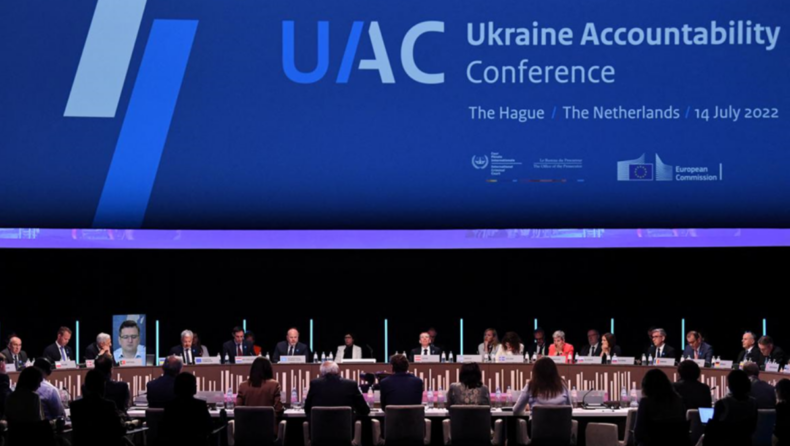
The International Criminal Court’s prosecutors will meet with government leaders from several nations on July 14 in the Netherlands. It will on how to best coordinate efforts to bring those responsible for conflict crimes in Ukraine to justice.
At the meeting, which is being hosted by the Dutch Minister of Foreign Affairs Wopke Hoekstra, International Criminal Court Prosecutor Karim Khan, and European Union Justice Commissioner Didier Reynders, some 40 countries from the European Union and throughout the world will be represented.
Since February 24, Russian President Vladimir Putin gave the order to invade Ukraine. His military forces have been accused of crimes ranging from murders in the Bucha neighbourhood of Kiev to deadly assaults on public buildings. Including the bombing of a theatre in Mariupol on March 16.
According to an Associated Press investigation, killed at least 600 people. So far, 338 possible war crimes have so far been recorded by the AP and FRONTLINE. They are keeping tabs on events in Ukraine.
U.S. Secretary of State Antony Blinken urged Moscow to stop forcefully deporting people
U.S. Secretary of State Antony Blinken urged Moscow to stop forcefully deporting people from Ukraine to Russia in a statement on Wednesday. He claimed that between 9,00,000 and 1.6 million people had been “interrogated, arrested, and forcibly deported” there.
According to Mr. Blinken, “Moscow’s efforts look deliberate and immediately invoke historical analogies to Russian ‘filtration’ operations in Chechnya and other regions.” In an apparent effort to alter the demographics of some of Ukraine, President Putin’s “filtration” operations are splitting families, seizing Ukrainian passports, and issuing Russian passports. ”
As per Mr. Blinken, Putin and his administration “won’t be able to participate in these chronic violations with impunity.” Responsibility is essential. For this reason, we are supporting the efforts of Ukrainian and international authorities to gather, record, and save atrocity evidence. We are committed to making those responsible for war crimes and other atrocities accountable collectively.
40 countries from the European Union and around the world will be represented
At the conference on Thursday, which is being hosted by the Dutch Minister of Foreign Affairs Wopke Hoekstra, International Criminal Court Prosecutor Karim Khan, and European Union Justice Commissioner Didier Reynders, about 40 countries from the European Union and around the world will be represented.
Moreover, they will meet to discuss coordinating investigations and evidence collection as the ICC and several nations pursue war crimes charges. Ukrainian President Volodymyr Zelenskyy is anticipated to address the government officials in recorded video messages.
Nevertheless, the conference takes place as both national and international probes are already underway. One of the subjects covered is how investigators from other nations might gather and record evidence. Especially of sexual crimes, so it can be used in other jurisdictions.
The ICC is the final resort court
Early in March, Mr. Khan began an inquiry in Ukraine after being requested to do so by several members of the international court. He has dispatched the largest-ever team of court investigators to gather evidence. Also he has travelled to Ukraine to personally witness the atrocities committed there.
However, the court has not yet made any arrest warrant announcements for suspects in the investigation. It may extend all the way to the Kremlin and the top of Russia’s military leadership.
When other nations are unable or unwilling to bring charges, the ICC serves as the court of last resort. The Hague-based court depends on cooperation from other nations to hold people in custody. As it lacks a police force to conduct arrests.
Kyiv has agreed to the court’s authority
Although neither Ukraine nor Russia are among the 123 member nations of the court. Actually Kyiv has agreed to the court’s authority. Thousands of war crimes investigations have been initiated. Since hostilities started in Ukraine, whose prosecutor general, Iryna Venediktova, intends to attend The Hague summit.
Moreover, a Joint Investigation Team composed of Ukraine and five other European countries is established with assistance from Eurojust, the EU’s body for judicial cooperation. The group’s goal is to make the exchange of evidence easier.













